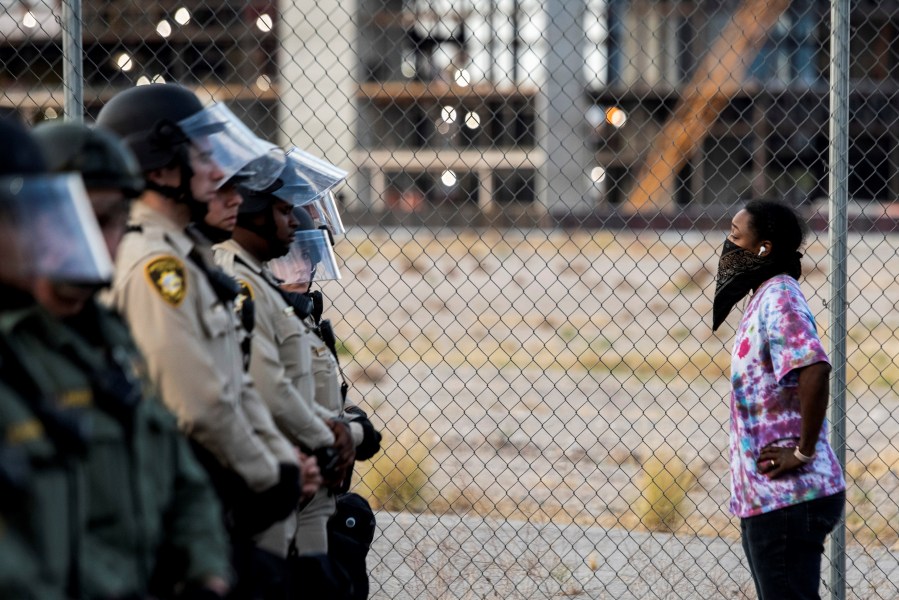Will the George Floyd protests finally catalyze real change?

Years of protest against police brutality and calls for reform reached a new pitch last week, when George Floyd died in police custody in Minneapolis.
Protests have flared in some 140 cities since then, and once again Americans are confronted with a reminder of the ways people of color, particularly black people, bear a disproportionate burden in this economy in the areas of health care, resources like loans and pandemic relief, food security and more.
Our guest today, D’Artagnan Scorza, grew up in Los Angeles during the unrest after the Rodney King trial in 1992. He’s the founder and executive director of the Social Justice Learning Institute in nearby Inglewood, California. At the start of our interview, he told us why he calls those seven days of protest an uprising and not a riot.
“Folk took to the streets because they believe the justice system had failed them. Their voices were not being heard,” he said. “We’ve heard Dr. King say riots are the language of those who are unheard. And for me, in many ways, it’s a reflection of centuries-old racism and oppression that has been manifested in these moments today.”
Today, we’ll talk with Scorza about his work at the SJLI, the language we use to talk about protest and policing, where the fight for equality and justice goes after a crisis and what to do about the inequality that is baked into some of our American institutions.
“I think back to what happened shortly after the Civil War in 1862, and in 1865 with the Freedmen’s Bureau. I think about 1921 and what happened with the Tulsa race massacre. I think about 1933 and the federal New Deal programs. I think about all these moments in history when America had an opportunity to do something different, and instead it put policies in place that actually set us back,” Scorza said. “I think we have an opportunity now to do things differently. We can learn from history.”
For more on New Deal housing programs and housing discrimination, listen to The Uncertain Hour tomorrow. Today’s Marketplace featured a conversation about the broad economic backdrop to the George Floyd protests.
Here are links to more of what we talked about on today’s show:
- “Policing: What Changed (and Didn’t) Since Michael Brown Died” in The New York Times
- “Financial and health impacts of COVID-19 vary widely by race and ethnicity” from Pew
- National poverty statistics by race
- The 1968 Kerner report on the relationship between inequality and inner-city violence in America
- Congressional Republicans’ response to President Trump’s photo op after clearing protesters from Lafayette Square with flash grenades and other crowd-control weapons.
- “Civil rights leaders say they’re ‘disappointed and stunned’ after call with Facebook’s Zuckerberg and Sandberg” in CNBC
None of us is as smart as all of us.
No matter how bananapants your day is, “Make Me Smart” is here to help you through it all— 5 days a week.
It’s never just a one-way conversation. Your questions, reactions, and donations are a vital part of the show. And we’re grateful for every single one.












